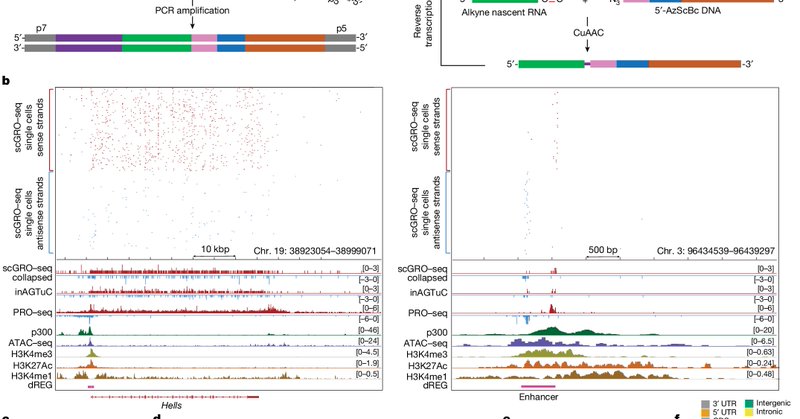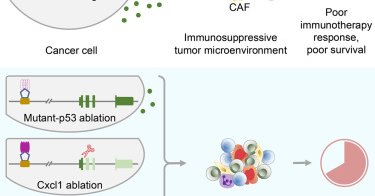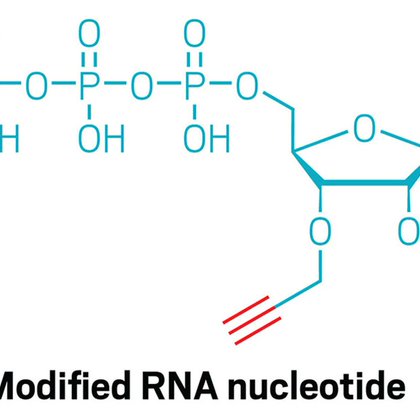
Digbijay Mahat
@DigbijayMahat
Followers
1K
Following
800
Media
18
Statuses
240
Cancer Research Scientist working on single-cell transcriptomics & pancreatic cancer at MIT |🇳🇵
Cambridge, MA
Joined January 2015
🙏🙏🙏.
Today's MIT homepage spotlight features Sharp lab postdoc, @DigbijayMahat! He became a cancer researcher to improve healthcare in Nepal. But when Covid-19 exposed additional resource disparities, he helped his homeland navigate testing & vaccine rollouts:
1
2
29
RT @ndtippens: Can we solve this by collecting RNA at earlier timepoints? No, because the average RNA half-life in human cells is 10 hours.….
0
1
0
RT @ndtippens: When cells are perturbed, we typically detect hundreds of differentially expressed RNAs. Many changes are driven by secondar….
0
1
0
RT @ndtippens: We anticipate that training perturbation prediction models on these nascent RNA datasets will dramatically improve causal in….
0
2
0
RT @ndtippens: What if we could quantify RNA synthesis directly? My colleague @DigbijayMahat has recently achieved this feat at single-cel….
nature.com
Nature - Nascent transcription in genes and enhancers genome-wide at the single-cell level is quantified using global run-on and sequencing (GRO–seq) with click chemistry.
0
7
0
RT @ndtippens: The discussion around virtual cell models has primarily focused on algorithms and metrics. What about the training data? Is….
0
9
0
RT @MGHSteeleLabs: Publication alert 🚨 Mutant p53 hijacks enhancers to drive CXCL1 expression and create an immunosuppressive TME in #PDAC.….
0
2
0
RT @LabWaggoner: Mutant p53 exploits enhancers to elevate immunosuppressive chemokine expression and impair immune checkpoint inhibitors in….
0
28
0
RT @ImmunityCP: Online now: Mutant p53 exploits enhancers to elevate immunosuppressive chemokine expression and impair immune checkpoint i….
cell.com
Pancreatic ductal adenocarcinoma is an aggressive cancer characterized by an immunosuppressive tumor microenvironment and limited therapeutic options. Mahat et al. show that a prevalent p53 mutation...
0
12
0
RT @GizemEfePhD: Important new work on how mutant #p53 drives immunosuppressive chemokines and ICI resistance in pancreatic cancer, now onl….
0
5
0
Could targeting enhancers unlock the full potential of immune therapies? .Our research shows that mutant p53 hijacks enhancers of immunosuppressive chemokine genes, boosting their expression and silencing the immune response. And it wouldn't be the first time—look at #Casgevy!.
Mutant p53 Exploits Enhancers to Elevate Immunosuppressive Chemokine Expression and Impair Immune Checkpoint Inhibitors in Pancreatic . #biorxiv_cancer.
1
0
7
RT @JSheltzer: Let’s play a little game. Let’s say that you’re the CSO at a cancer pharma company, and you have to choose a target to go….
0
1K
0
Link for the coverage of our work by ACS @ACSPublications:.
cen.acs.org
A new technique allows scientists to track RNA expression in single cells at the moment genes are transcribed from DNA to RNA.
0
0
1
Thanks to Anne Trafton @MIT News for the piece!.
The Sharp Lab's @DigbijayMahat developed a way to map out transcription coordination in cells by to capturing short-lived RNA molecules. The technique may reveal potential new drug targets for genetic disorders.
0
0
9
RT @artofbiology: scGRO-seq | Single-cell nascent RNA sequencing unveils coordinated global transcription | Nature .
0
16
0
RT @jmartinrufino: Huge congratulations to @DigbijayMahat for his transformative technology to map polymerases in single cells, scGRO-seq,….
nature.com
Nature - Nascent transcription in genes and enhancers genome-wide at the single-cell level is quantified using global run-on and sequencing (GRO–seq) with click chemistry.
0
1
0
@MIT @kochinstitute Here is the link to MIT News article aby Anne Trafton:.
news.mit.edu
MIT researchers invented a technique that allows them to observe which genes and enhancers are active in a cell at the same time. This could help them determine which enhancers control which genes...
0
0
1









